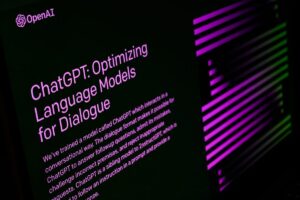Masayoshi Son of SoftBank is taking major risks by relying significantly on debt.

SoftBank’s Major Investment in OpenAI
A Bold Move in Technology Investment
SoftBank Group, a well-known Japanese conglomerate, is making headlines by spearheading a staggering $40 billion investment in OpenAI, the organization behind ChatGPT. This latest round of funding has propelled OpenAI’s valuation to approximately $300 billion—double what it was in October 2024 when the company initially raised $6.6 billion from various investors, SoftBank included.
Strategic Vision for AI Development
SoftBank regards OpenAI as a key partner in the race toward achieving Artificial General Intelligence (AGI), a significant milestone on the journey to Artificial Super Intelligence (ASI). This confidence comes as OpenAI continues to roll out enhanced versions of its AI tools, recently announcing that it has surpassed an impressive 1 billion weekly active users.
SoftBank’s Investment History
Despite an array of challenges over the past few years, the latest investment has solidified founder Masayoshi Son’s reputation as a daring investor in the tech sector. In 2022, SoftBank experienced a major setback, reporting a $6.2 billion loss due to the bankruptcy of WeWork, a shared office space start-up significantly backed by Son. This loss was compounded by a tech sell-off sparked by rising interest rates and concerns about inflation and recession. Even after these financial struggles, SoftBank reported a net profit of ¥636.2 billion for the nine months ending December 2024, though it did encounter losses in the last quarter. Yet again, Son remains undeterred, focusing on expanding investments in artificial intelligence.
Expanding Beyond OpenAI
A Diverse Investment Strategy
SoftBank’s focus on AI is not limited to OpenAI alone. The conglomerate is pursuing a "Cluster of No.1 AI Strategy," which involves investing in leading AI companies across various segments, including chip design, AI infrastructure, and application services, and spanning multiple industries.
- Recent Acquisitions:
- In March, SoftBank bought Ampere Computing, a chip designer, for $6.5 billion to enhance its computing infrastructure.
- In 2024, it invested in Wayve, a UK-based self-driving car technology start-up.
- SoftBank is also spearheading the $500 billion Stargate project, a massive data center initiative based in the United States.
- Additionally, it has formed a 50-50 partnership with OpenAI called Cristal Intelligence to develop high-level AI solutions for large Japanese enterprises.
Data reveals that SoftBank has committed $6 billion in investments during the first three quarters of this fiscal year, a significant increase from the $3.9 billion it invested throughout the previous fiscal year.
Financing Through Debt
Managing Financial Strategies
As of December 31, 2024, SoftBank claims to have around ¥5 trillion ($31 billion) in cash reserves; however, it plans to primarily achieve its AI investment goals through debt financing. This approach is not new for SoftBank, as its history of acquiring companies has often relied on borrowed funds.
Reports indicate that the initial $10 billion investment in OpenAI may be financed through loans sourced from Mizuho Bank and other financial institutions. Regarding the Stargate project, SoftBank is reportedly looking to borrow around $16.5 billion. The company is also working on raising over $4 billion in retail bonds to pay off earlier bonds—an approach that has sparked concerns. Recently, the Japan Credit Rating Agency downgraded its outlook for SoftBank from "stable" to "negative." In an effort to manage debt levels, SoftBank aims to maintain a loan-to-value ratio below 25%, which may lead them to sell stakes in companies like ARM, where it holds a significant 90% share.
The Growing AI Market
Concerns Over Investment Viability
Masayoshi Son has garnered a reputation as one of the most risky investors in the tech domain, detailed in his biography titled "Gambling Man." Although he is known for taking contrarian bets, investors are increasingly concerned that a bubble may be forming in the AI sector. In 2024, U.S. venture capitalists allocated 44% of their investments to AI startups, a stark rise from just 15% in 2020.
Jim Covello, head of stock research at Goldman Sachs, expressed caution in June 2024, warning that the billions poured into AI companies may not yield substantial returns. In February of that same year, Sequoia reported that while the AI sector spent $50 billion on Nvidia chips in 2023, it only generated $3 billion in revenue. While the landscape of AI continues to evolve, it remains uncertain whether current developments will justify the sizable investments being made.






